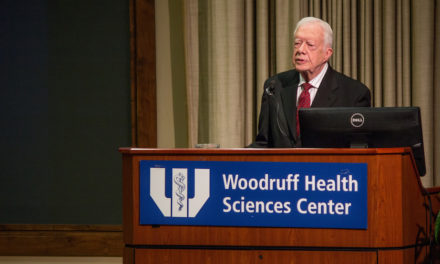Executive Vice President for Business and Administration Christopher Augostini wrote an Oct. 1 letter to the Internal Revenue Service (IRS) on behalf of Emory with suggested modifications to a new proposed tax code which threatens to increase the University’s expenses. The proposed modifications would increase tax expenditures on student loans and housing, among other things.
The IRS proposed the new regulation aimed at private institutions of higher education under IRS Code Section 4968 in July. The proposed regulations impose a 1.4 percent tax on the “net investment income” of institutions that possess assets involved in non-exempt purposes totaling at least $500,000 per student. Net investment income typically includes income from rent, interests and royalties.
Emory is not alone in its opposition to the new proposed regulations, which were initially created as part of the Tax Cuts and Jobs Act of 2017. According to Vice President of Policy and Research at the National Association of College and University Business Officers (NACUBO) Liz Clark, 39 institutions have joined to submit their concerns and comments to the IRS. NACUBO submitted a comment letter that received endorsements from various other educational institutions.
Among the modifications suggested by Augostini was the exemption of taxes on interest income from student loans given by Emory. He argued that loans to students are essentially deferred tuition payments necessary to supplement the financial need loans given to students.
Additionally, Augostini requested that income from student housing provisions be exempt from taxes under “net income” because housing is not provided for the purpose of making profit but rather to foster a learning community, and should therefore not be considered rental income. He also recommended that capital gains on the sale of donated property be exempt from taxation.
Clark said in an interview with the Wheel that NACUBO is supporting legislation to reverse the tax code.
“NACUBO supports the bipartisan Don’t Tax Higher Education Act,” Clark said. “It was recently reintroduced by two members of Congress and would fully repeal the excise tax.”
Clark said that the potential fallout of Section 4968 could result in diminished resources for financial aid, research, public service, and other programs and services that constitute higher education institutions. Additionally, Clark expressed NACUBO’s concerns over the taxation of student loans and student housing.
“We believe it’s unprecedented and, frankly, an attack on the tax-exempt status of institutions,” Clark said.
The proposed rule would establish taxes similar to those levied on private foundations, which the NACUBO opposes, according to Clark.
“We believe that some aspects of the approach follow an excise tax that is currently in place [and] that affects private foundations,” Clark said. “We strongly urge [the] IRS and Treasury [Department] to consider the fact that colleges and universities are not the same as private foundations.”
Section 4968 has not yet been finalized, and the timeline for its implementation remains uncertain.
“It is unclear when will see a final rule,” Clark said. “We are hopeful we may see it near the end of the calendar year, but it is unpredictable when we will see that rule published.”




